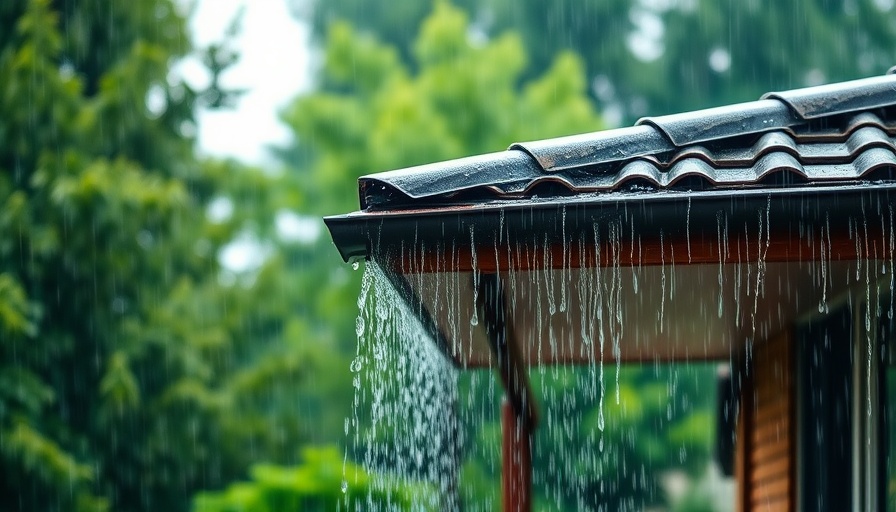
Understanding Tornado and Hurricane Seasons
As we move deeper into 2025’s storm cycle, a fundamental question for homeowners and renters alike is: when is tornado season? Generally, tornadoes occur between April and June in the United States, especially in regions known as Tornado Alley. This territory spans Texas, Oklahoma, Nebraska, and Kansas. However, there are secondary hotspots, including Hoosier Alley in the Midwest and Dixie Alley in the Southeastern states, indicating that preparation is vital across a broader swath than many realize.
Meanwhile, hurricane season runs annually from June 1 to November 30, with peak periods generally from August through October. Areas such as Florida, Texas, and the Gulf Coast are particularly vulnerable, yet the Northeast is not completely shielded from the impacts of these powerful storms. Recognizing these seasons can significantly affect how you prepare your home and safeguard your family.
How to Prepare Your Home for Tornadoes and Hurricanes
Preparation doesn’t just mean finding the right homes for sale or houses for rent. It’s about fortifying your current living space against the elements. Here are critical steps:
- Secure Your Home’s Exterior: Ensure windows are equipped with storm shutters, and doors are reinforced. Simple materials like plywood can be used to cover windows, especially for a last-minute storm prep.
- Create an Emergency Supply Kit: Every household should have an easy-to-access emergency kit containing essentials such as water, non-perishable food, first aid supplies, flashlights, and a battery-operated radio.
- Have a Storm Preparation Checklist: This checklist should list all necessary preparations, from securing outdoor furniture to checking your emergency supplies.
Actions During a Storm: Tornado and Hurricane Protocols
When the storms hit, your response can be vital:
- Tornado: Stay indoors, away from windows, and take cover in a basement or interior room without windows.
- Hurricane: If you are in a coastal area, evacuate if instructed by authorities. Otherwise, stay indoors, away from windows, and keep away from flood-prone areas.
What Not To Do: Missteps that Could Cost You
During storm season, avoiding certain behaviors can be as essential as practicing the right ones:
- Do Not Seek Shelter Under Highway Overpasses: This is a common myth that can be dangerous during tornado conditions.
- Don’t Go Outside to Assess Damage: After a storm has passed, wait for authorities to assess the area before going outside.
After the Storm: Recovery Steps
Once the storm passes, it’s time to assess damage:
- Document Everything: Take photos of damages for insurance purposes. It’s essential to have thorough records for claims.
- Contact Your Insurance Agent: Report damages promptly to ensure a smoother recovery process.
Make the Most of Understanding Cyclonic Weather
The more prepared you are, the more you minimize potential damage to your property. Knowing the seasons, having a plan, and understanding what to do before, during, and after a storm can ultimately save your life and your investment property. Real estate is not just about foreclosures or commercial real estate; it's about being ready for anything.
Proactive Measures: A Homeowner’s Responsibility
Investing time in proper storm preparation means you won't just shield your property but also protect your family and loved ones. Every year, countless homeowners are victim to the whims of nature, but by taking proactive measures, you ensure your home stands strong against what lies ahead. Engage your neighbors in community preparation and utilize online resources, such as redfin and trulia, for tips and local construction regulations regarding storm-resistant improvements.
Conclusion: Why Prepare?
Ultimately, a well-prepared homeowner wins the battle against storms not once, but twice. Before the storm hits, secure your property and gather supplies. Afterward, focus on recovery methods like documenting damage and connecting with your insurance. In the end, the safety of you and your property relies heavily on preparation.
Don’t wait for the next storm season. Take action now by reviewing your home’s readiness and investing in necessary improvements. Ensure your storm supplies are updated, and familiarize yourself with your local weather patterns. Stay safe!
 Add Row
Add Row  Add
Add 




Write A Comment